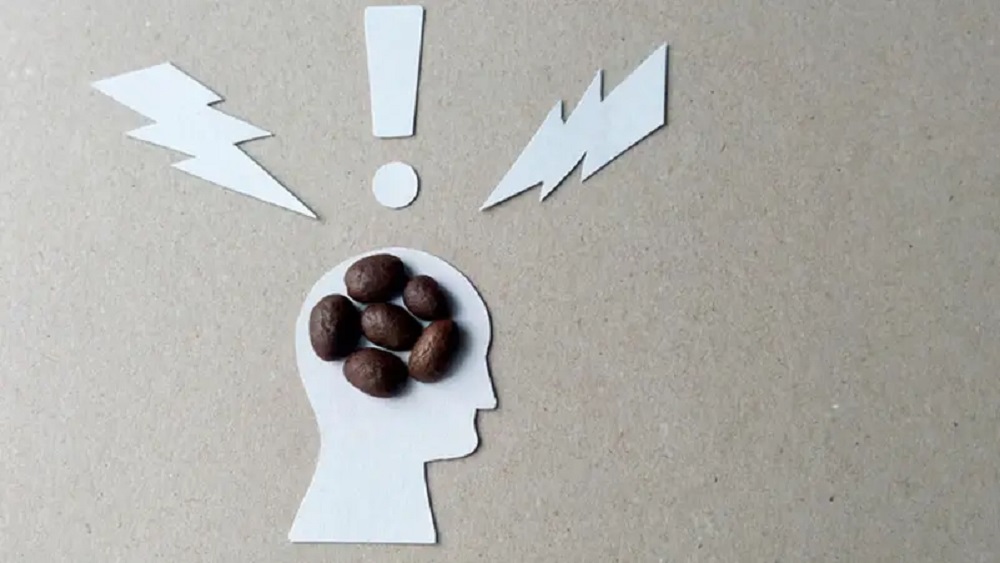Caffeine and Brain Function: How Genetics Shape Its Impact on Thinking Skills
A new study reveals that caffeine’s cognitive effects depend not just on consumption but also on genetic factors that influence metabolism and emotional recognition.

Watan-A new study published in the journal Psychopharmacology has revealed that the way caffeine affects thinking skills is not only related to how much coffee a person drinks but also to their genetic makeup. Researchers from the University of St. Mary’s in the UK discovered that people who process caffeine quickly performed differently on cognitive tests depending on their caffeine consumption levels, especially in tasks involving emotional recognition and complex thinking.
According to PsyPost, the findings suggest that genetic composition plays a significant role in how individuals respond to caffeine’s effects on brain power.
Caffeine’s Impact on Cognitive Abilities
Scientists have long been interested in understanding how various substances affect our cognitive abilities, from students trying to boost their study sessions to older adults hoping to maintain sharp minds. Caffeine, found in coffee, tea, and many other beverages, is the world’s most widely used stimulant and is often considered a potential brain booster. While caffeine is known to improve simple mental tasks like attention and quick reflexes, its effects on more complex abilities such as decision-making remain less clear. Some research suggests that regular caffeine consumption may be linked to improved memory and thinking skills, but this is not consistently seen across all studies.
One reason for these inconsistent results could be individual differences, as some people process caffeine faster than others, potentially due to genetic differences. These genetic variations could explain why some individuals feel a strong boost from caffeine, while others experience minimal effects or even negative effects such as anxiety or sleep problems. However, previous studies on caffeine and thinking skills have not accounted for participants’ daily habits, such as their regular caffeine intake or other lifestyle factors like sleep and diet, which can also affect cognitive performance.

Genetic Interactions
The researchers behind the new study wanted to investigate how an individual’s genes, particularly those related to caffeine metabolism, interact with their usual caffeine consumption to affect various aspects of their cognitive abilities in daily life. They aimed to look at a wide range of thinking skills, including social and emotional understanding, memory, attention, and complex problem-solving.
Study Details
The study involved 129 adult volunteers living in the United Kingdom. Participants were carefully selected to exclude anyone with known brain disorders or vision problems, and those taking medications that could interfere with caffeine metabolism. The study was conducted remotely over three days.
First, participants completed an online questionnaire about their background, health, lifestyle, and typical consumption of caffeine-containing foods and drinks. This included questions about their age, gender, education level, physical activity, sleep quality, and tobacco use. To estimate their regular caffeine intake, participants filled out a detailed food questionnaire listing common sources of caffeine such as tea, coffee, chocolate, and soft drinks.
Cognitive Testing
Over the course of up to two weeks, participants completed a series of cognitive tests online from their homes. They were asked to perform these tests on the same device in a quiet environment, and at least five hours after their last caffeine intake. This timeframe was chosen to ensure that participants were not experiencing the immediate effects of caffeine and were unlikely to be in caffeine withdrawal. Before each testing session, participants also rated their level of sleepiness. The cognitive test set included four different tasks designed to measure specific thinking skills.

Social and Emotional Understanding
Social and emotional understanding was assessed by showing participants images of faces displaying six basic emotions: anger, fear, sadness, happiness, disgust, and surprise. Participants had to quickly identify the emotions displayed on each face. Memory was evaluated using a letter-based task where participants had to recall letters presented one, two, or three steps back in a sequence.
Their working memory, the ability to hold and manipulate information in the mind, was tested. Attention was assessed with a task requiring participants to respond as quickly as possible when a red dot appeared on the screen. Vigilance and reaction time were measured. Finally, executive function, which includes skills like problem-solving and flexible thinking, was evaluated using a Stroop test. In this test, words printed in different colors were shown to participants, and they had to name the color of the ink, not read the word itself. This task creates a conflict in the brain because reading words is automatic, but naming the colors requires overriding this automatic response, thus testing executive control. To get a comprehensive measure of overall cognitive ability, participants were also tested for vigilance and reaction time.
Global Cognitive Score
The researchers combined the results from all four cognitive tests into one global cognitive score. In the final part of the study, participants provided a saliva sample, which was used to analyze their DNA. The researchers focused on specific genetic variations known as single nucleotide polymorphisms (SNPs). They looked at genes involved in caffeine metabolism (how quickly the body breaks down caffeine) and caffeine response (how sensitive someone is to the effects of caffeine). They also examined genes related to sleep quality and the risk of cognitive decline, as these factors could also affect cognitive performance.
Caffeine-Gene Interaction
After gathering all the data, the researchers analyzed the results to see how caffeine consumption and genes interact to affect cognitive performance. They divided the participants into groups based on their usual caffeine intake: low, medium, and high consumers, as well as based on their caffeine metabolism profiles—”slow” or “fast.”

Age Factor
The study found that, overall, neither usual caffeine intake nor genetics alone were strongly related to cognitive performance across all areas. However, age was a factor, with older participants performing slightly worse on some cognitive tasks. Body mass index (BMI) was also linked to executive function.
Emotional Recognition
Importantly, when the researchers looked at the combination of genes and caffeine consumption, they found interesting interactions for emotional recognition and executive function.
For emotional recognition, they noticed that among individuals who consumed large amounts of caffeine, those with fast caffeine metabolism genes performed worse at recognizing emotions compared to those with slow caffeine metabolism genes.
Moreover, among those with fast metabolism, those who consumed high levels of caffeine performed worse than those with fast metabolism who consumed low or moderate levels of caffeine. This suggests that for people who metabolize caffeine quickly, high caffeine intake may actually hinder their ability to recognize emotions.
Executive Function
In contrast, for executive function, the researchers found that among people who consumed moderate amounts of caffeine, those with fast caffeine metabolism genes performed better on executive function tasks than those with slow caffeine metabolism genes. This suggests that for individuals who process caffeine quickly, moderate caffeine consumption may benefit complex thinking skills.

Caffeine Withdrawal Symptoms
The researchers speculated that the poor performance on emotional recognition tasks among fast metabolizers with high caffeine intake might be related to caffeine withdrawal. Although participants were asked to refrain from consuming caffeine for at least five hours before testing, individuals with fast metabolism might experience withdrawal symptoms faster, especially if they are accustomed to high caffeine levels.
This withdrawal could negatively impact their performance on cognitive tasks, especially those related to social and emotional processing. The improved executive function in fast metabolizers with moderate caffeine intake could reflect a beneficial effect of caffeine at the right dose for their metabolism rate, without causing negative side effects or withdrawal.





